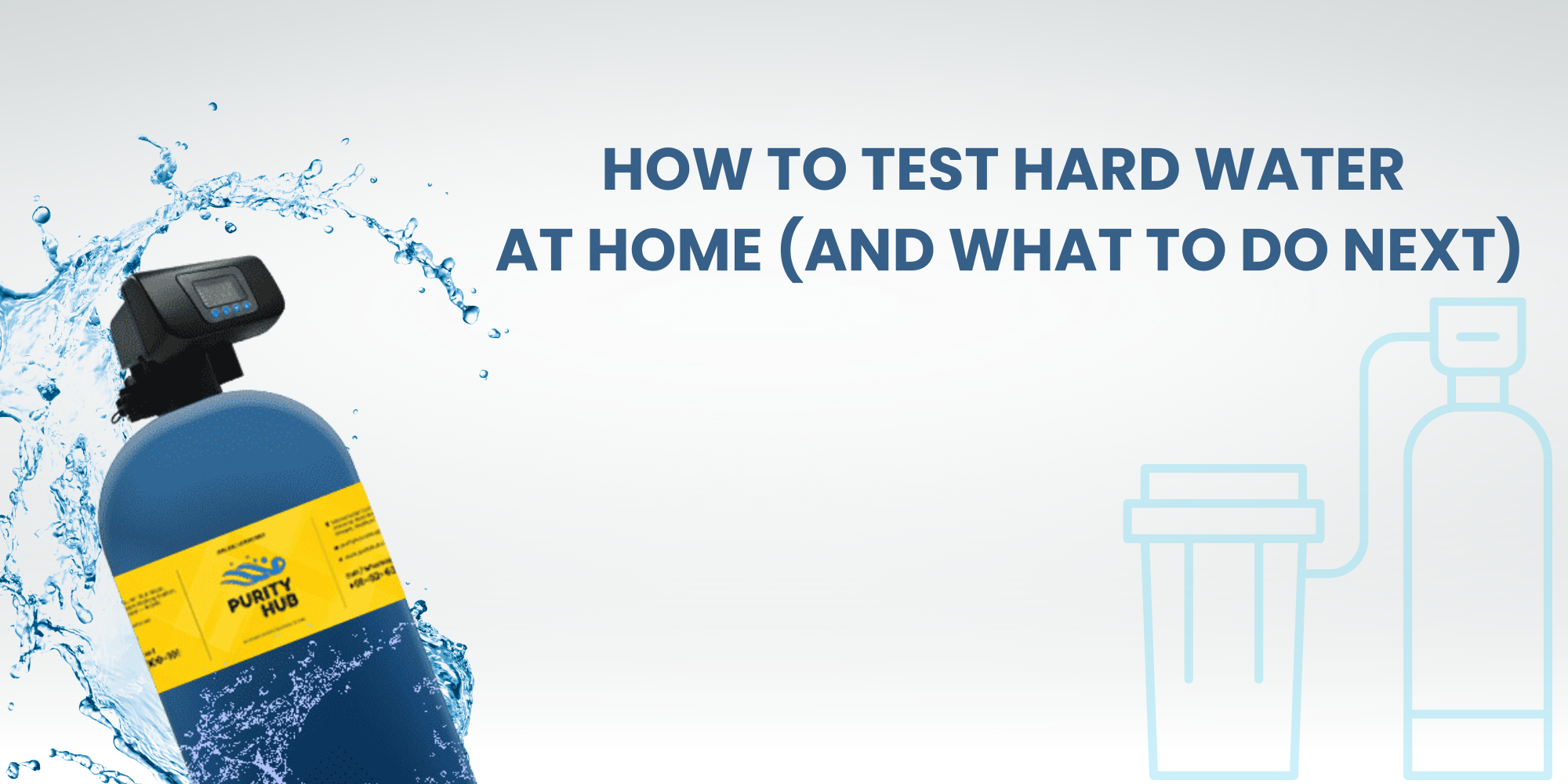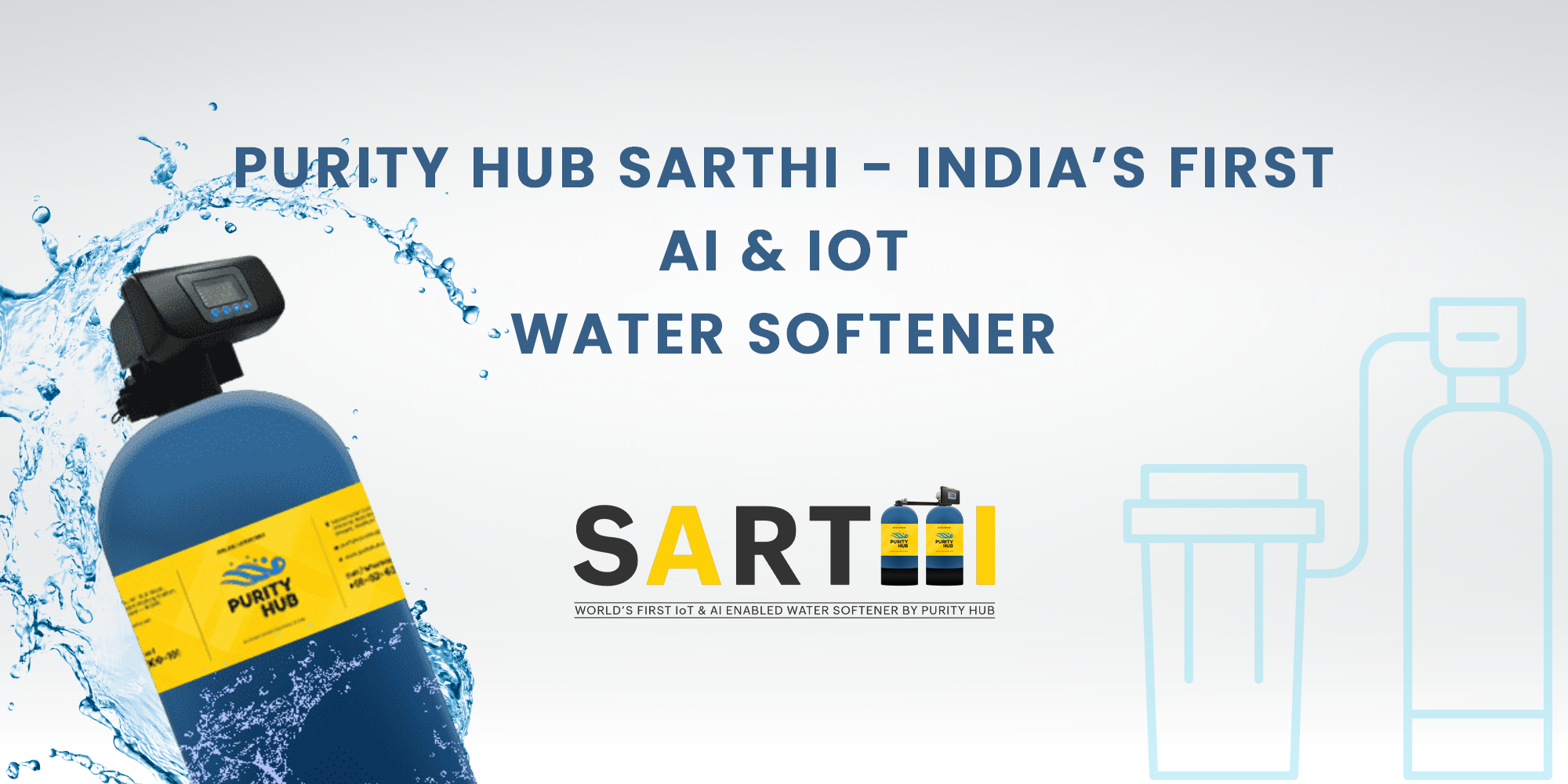
Summary
The capacity to check hard water in your own home is the key to healthier skin, shiny hair, and cheerful appliances. From the speedy soap-bottle shake test to looking for marks on your taps, or a speedy DIY kit, the result provides you with the information you require in order to make a choice on what to do next. From a basic fix such as a shower hard water filter to a whole-house water softener system, hard water treatment not only guards your home—but it pays for itself, saves you time, and frees you from tons of daily frustration. Try before you buy, treat smart, and indulge in the luxury of water that works for you, not against you.
Why Would You Have Hard Water Tested?
For goodness' sake, water is the sort of thing we just take for granted until it begins leaving its chalky residue on our glasses, dries out our skin, or turns our hair into a frizz ball. That's the sneaky one that is hard water.
But, the point is, you simply can't determine by taking a glance at your water whether it is hard or not. Sure, non fragranced soap or that white goop on your bathroom appliances is suspicious, but only a test will be definitive.
The best news is, it's simple enough to become proficient at testing hard water throughout your house, and soon enough you'll have an answer if you require a hard water filter or even a whole house water softener system in order to put smiles on your house and skin.
The Soap Test: The Old-School Detective Trick
If you’ve ever shaken up a bottle of water and soap together, you’ve actually performed a mini science experiment without realizing it.
The simplest way to check for hard water is by filling a clear bottle halfway with tap water, adding a few drops of liquid soap, and giving it a good shake.
If the water is murky and does not foam, that's a tip-off—that is, calcium and magnesium minerals are being wasted overboard and stopping the soap from doing its job.
Soft water, by contrast, produces a springy, foamy response right away. This "soap test" is not perfect, but it is a cheap, fun, and easy test to determine if hard water could be the source of all the bathroom soap soap-drama.
The Stain and Scale Hunt: Hints in Plain View
Sometimes, however, you won't even need to reach for a bottle or a bar of soap to solve the mystery of hard water. Just look around your kitchen and bathroom, and there are your hints.
White spots on your glasses of water? Mineral deposit, that's what.
White film on showerheads and faucets? Of course, that's the typical mark of hard water.
Crunchy dirty clothes that make you cringe when you put them on? Another one of those signs.
And if your skin's still just as dry after buckets of moisturizer, or your hair is always lifeless from subjecting it to as much shampoo as it can possibly tolerate to get it clean, those're your own special signs that your water's not being friendly to you.
These're more "notices" than "hard water tests," but reminders that you might like to investigate hard water treatment before your gear and your sanity are worn to a pulp - and find yourself involuntarily transforming into an ogre, as well.
DIY Test Kits: Home Science Made Easy
If you'd prefer to have something numerical rather than a bubble count sample, you always have recourse to hiring the services of a hard water test kit.
They are available in all sizes, shapes, and colors, even include test strips, and work just like you do when testing pool water.
Immerse the strip in tap water, observe the color change, and locate its twin on the included chart. Ta-da—now you have a reading of just how "hard" your water actually is, typically in grains per gallon (gpg) or parts per million (ppm).
It's not an attempt-at-being-aloof goody-goody science geek; it's do-or-die if you are going to get a whole house water softener or even a small hard water filter on one particular tap or shower. It's basically creating a mini lab in the bathroom with a very convenient pay-out.
The Glass Test: A Cold Kitchen Science Experiment
More of a non-traditional way to test your water without equipment.
Set out a fresh glass of tap water overnight. Come morning, if you find white flakes or crud accumulated at the bottom of the glass, hooray—you've got hard water.
If the glass whistles when you open it, your water's softer than a lullaby.
It won't be one of those fizzy science experiments, but it's basic, photo-worthy, and strangely satisfying.
And, oh, it's a fantastic icebreaker the first time you've got people over and everybody's wondering why on earth you're showing off all these miscellaneous water glasses on the counter.
Calling in the Experts: If in Doubt, Call an Expert
Of course, then there are certainly some situations when DIY just won't do, though, particularly if your water is actually stressing out your appliances and pipes.
Professional water testing will provide you with a precise analysis of what's suspended in your water, from hardness to pH to possible impurities.
Not only will this type of testing inform you of the level of hardness, but it will even inform you of the solution, whether in the form of a small shower hard water filter or a whole-house water softening system.
It is as if to guess to crystal clear certainty all in one stop.
What to Do Next: Hard Water Treatment Options
Once you've had your water tested and have found that it is indeed hard, everyone's immediate question is: now what do I do?
The solution lies in the severity of the issue.
In the case of mild hardness, a low-cost hard water filter placed on your kitchen faucet or showerhead can work miracles. Point-of-use filters remove minerals where you'd least want to have them, and your skin, hair, and dishes will thank you.
But if water is off-the-charts hard, a water softener system is the solution.
A home water softener works its magic by swapping calcium and magnesium ions for sodium or potassium, if you will, softening every drop of water that passes through your home.
What it does is cleaner clothes, brighter dishes, less lime scale buildup in pipes, and a heck of a lot less labor for you.
Why It's Worth Fixing Hard Water Now
Consider it this way: un-treated hard water is a drip in your wallet.
It reduces the lifespan of an appliance, forces you to consume more soap and detergent than is necessary, and gives you money in your pocket for skin and hair care products.
A good treatment of hard water, whether an inline filter or a separate hard water softener, isn't just rescuing your hair and your skin—yours is being saved money in the long run.
Other than that, you're letting your home get to enjoy smoother, cleaner, improved water use day by day of the week.
Final Thoughts: Test First, Treat Smart
Your water shouldn't be a headache to test. From the crazy soap bottle shake to easy test kit solutions, it is simple enough to get educated on hard water testing from the comfort of your own home and avoid hundreds of headaches down the line.
Now that you know your water's hardness level, you need to decide: the optimal solution—either simple shower-only hard water filtering or whole house water softening.
Monsoon or no monsoon, love your water, not hate it. Life's just too darn short to put up with stiff clothes, spotty glasses, and grumpy skin.


